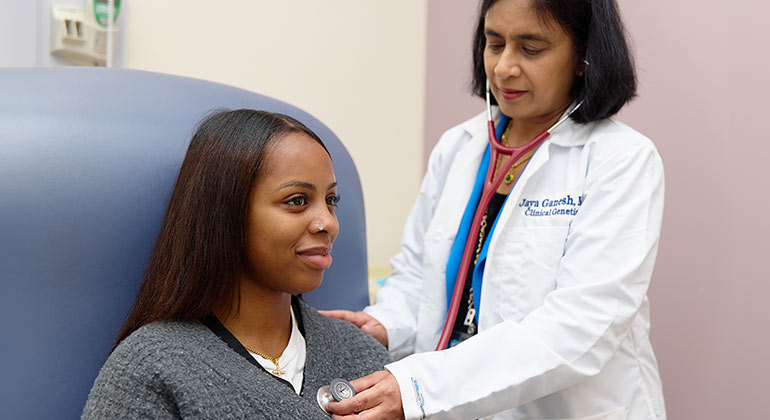Mitochondrial Medicine Program

Our specialized mitochondrial programs are committed to the early diagnosis and comprehensive management of mitochondrial disorders. Leveraging insights gained from cutting-edge scientific research on mitochondrial function in both health and disease, we pioneer state-of-the-art laboratory and genetic diagnostics, alongside tailored treatment plans.
Our integrated approach encompasses basic, translational, and clinical research initiatives aimed at enhancing the well-being of individuals with mitochondrial disease and facilitating clinical trial readiness. Our team of medical biochemists and clinical geneticists collaborates closely with metabolic dietitians, neurologists, cardiologists, hepatologists, nephrologists, pediatricians, and transplant teams. We also work in tandem with diagnostic laboratories within the Department of Genetics and Genomic Sciences and the Department of Pathology, as well as with the Kozicz Mitochondrial research laboratories. Strengthening our commitment, we maintain a robust partnership with the United Mitochondrial Disease Foundation and collaborate extensively with the Mitochondrial Care Network, Mitochondrial Medicine Society, and other leading mitochondrial centers both nationally and internationally.
Meet our Mitochondrial Program Faculty:
Jaya Ganesh, MD
Eva Morava, MD
Ibrahim Elsharkawi, MD
Collaborators:
Tamas Kozicz, PhD